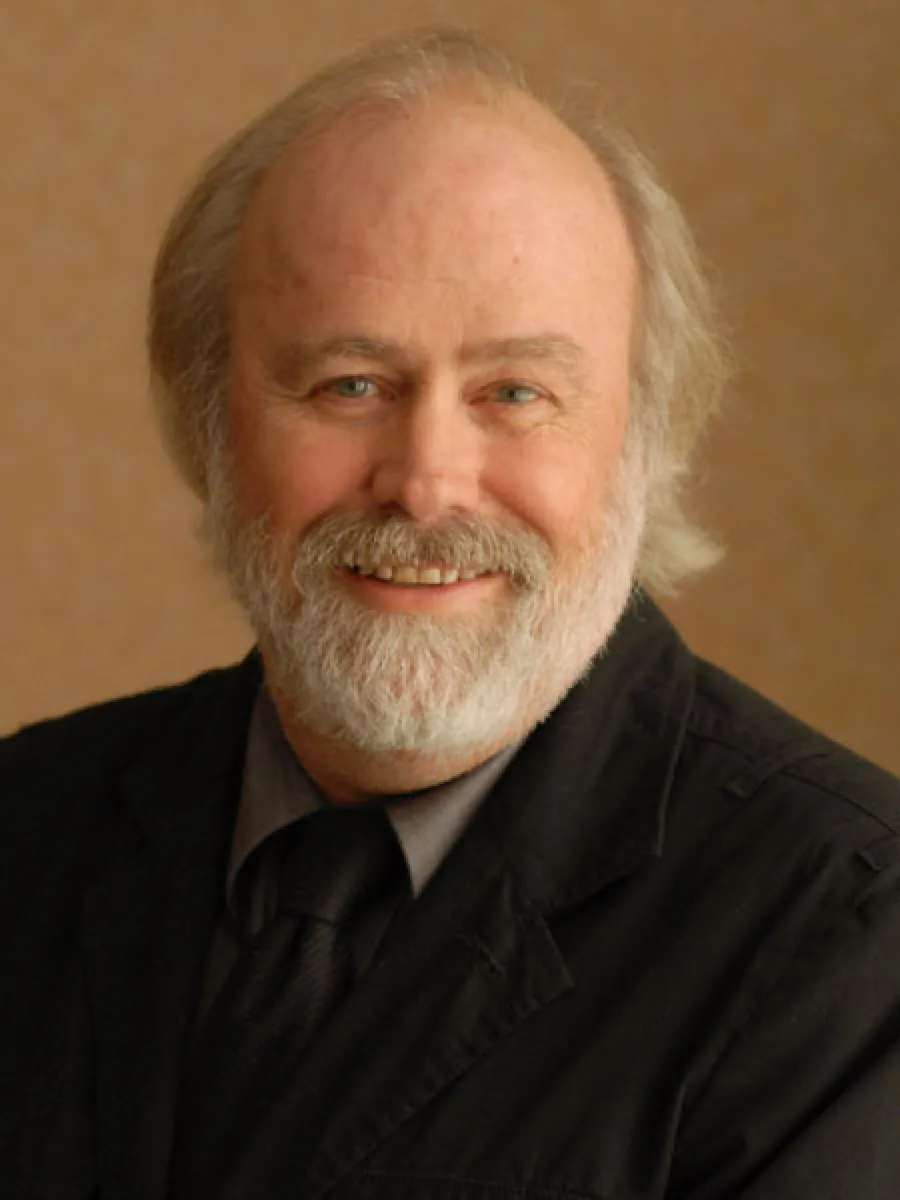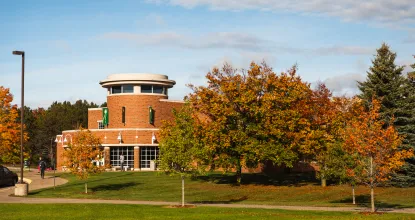The Fillmore C. F. Earney Endowment benefits EEGS students
The Fillmore C. F. Earney Endowment was established in 2003. This article traces the fund’s history and provides a few of the many examples of how scholarships from the Earney Endowment have helped EEGS students learn and grow. Private support from our loyal alumni and friends positively influences how we educate our students and respond to emerging opportunities each year. From expanding access to critical aid, such as scholarships, to developing research, gifts of all sizes matter and help our students in return help Planet Earth. We are grateful.
Dr. Fillmore C. F. Earney was a Professor of Geography at NMU from 1966 to 1996. His academic specialty was the geography of mining and mineral resources. As Professor Emeritus he was still invested in the success of the department and contributed to this fund until his passing in November 2025. Dr. Frederick “Fritz” E. Nelson ’73 established the endowment in honor of his influential professor, Dr. Earney. Over the years, 24 students and counting have earned scholarships to help with their undergraduate and graduate education and prepare them for careers. Dr. Nelson, Dr. Earney, and some scholarship recipients shared these memories and sentiments with the EEGS Department.
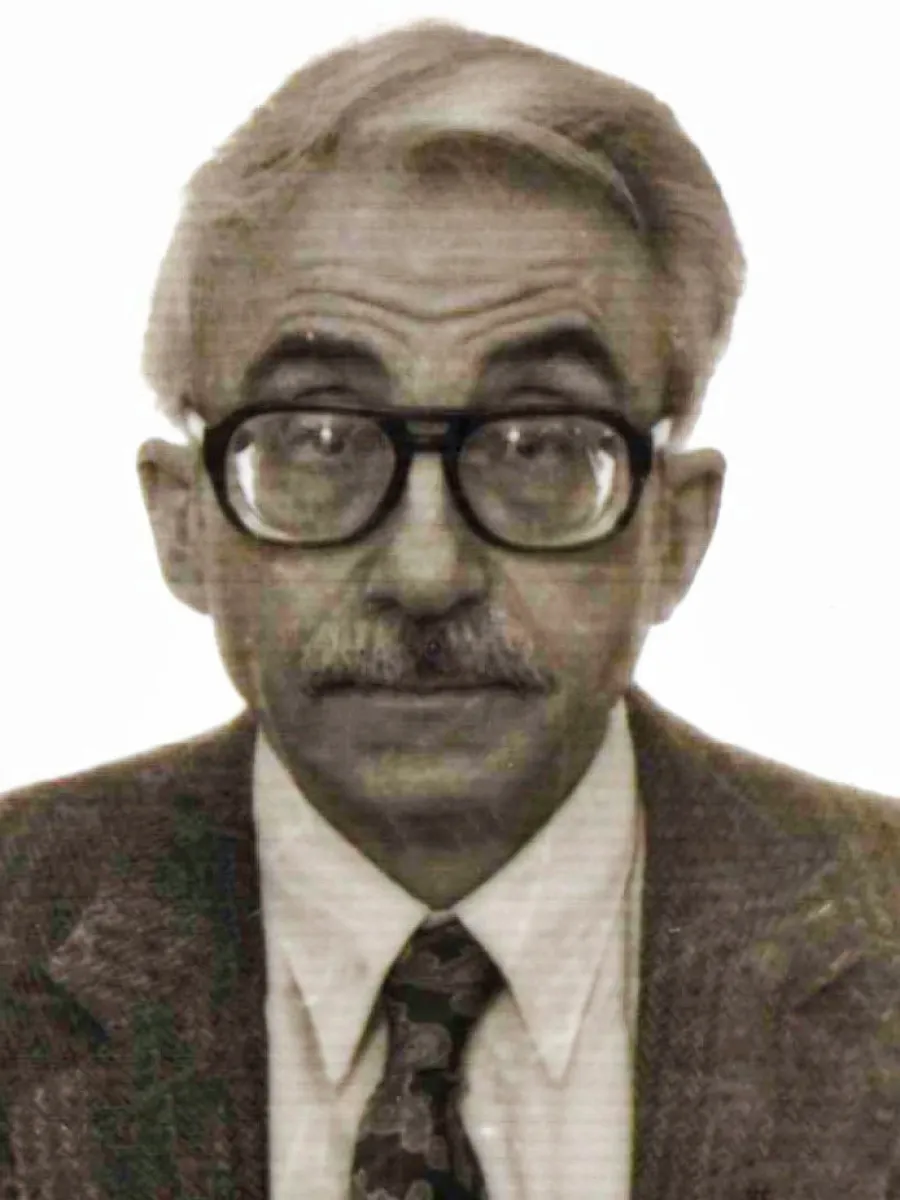
Ezra Dedenbach '24 BS is the most recent recipient of a Fillmore C. F. Earney Scholarship. Ezra is the first student to join the EEGS Department's Sustainability M.S. program. He observed,
“As an undergraduate at Northern I found a supportive community and educators, and this began to expose me to new ideas that changed my path….Now I am returning to Northern as the first student in the new Master of Science in Sustainability program. Graduate school is an exciting opportunity that I am very grateful to have, and I am very thankful for this scholarship and the generosity [of Dr. Nelson and Dr. Earney]. Over this last summer I joined the Northern Woodshed Project and will be working until this project’s conclusion in 2026, including presenting it at the Society of American Foresters national conference this October. I am intrigued to follow this project through, informing Northern’s choices for heating and decarbonization. Beyond that I am open to the other opportunities that will present themselves. I hope to work towards a sustainable future through carbon projects, local resource reliance, and energy independence.”
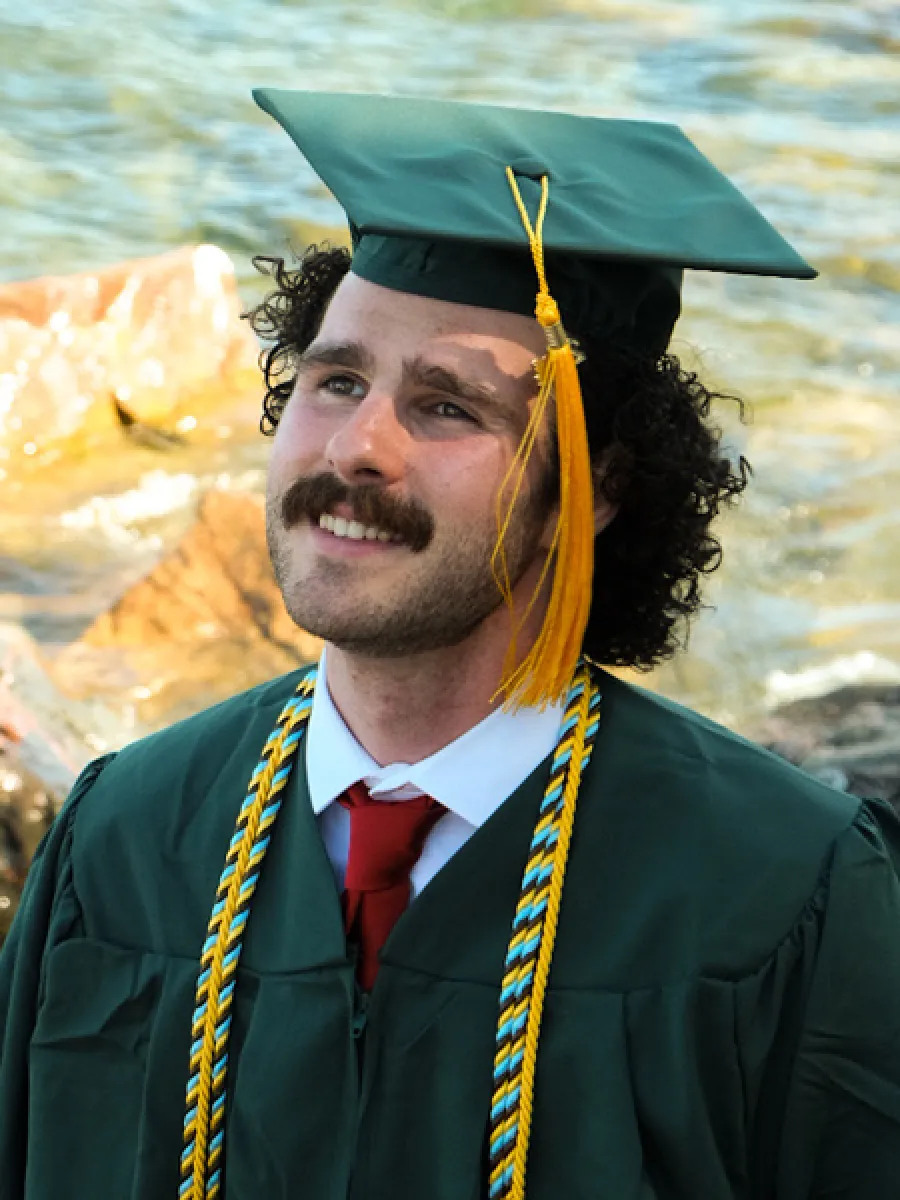
Mary Kelly ’24 is pursuing a M.S. degree at the University of Michigan. She reflected,
“I received a scholarship from the Fillmore C. F. Earney Endowment as a senior at NMU in May 2024. The following Fall, I began my master's degree in Environment and Sustainability at the University of Michigan (U-M). Within my degree, I am pursuing dual concentrations in geospatial data sciences and ecosystem science and management. Funds from the Earney scholarship will support my travel this summer to the Northern Great Plains (NGP) region of the U.S., where I will engage in fieldwork for my master's capstone project. The project is a group effort between an interdisciplinary team of five U-M master's students and our collaborators at the Buffalo Nations Grasslands Alliance, a Native-led non-profit focused on co-stewardship of National grasslands with the surrounding Tribes. I will produce geospatial tools to assist Tribes in the NGP with grasslands conservation and wildlife corridor analysis. While I am excited to get to work, I also recognize that it is an honor to work closely with and learn from Indigenous Peoples—for this, I am grateful. The Earney scholarship and my experiences at NMU have contributed to my success thus far as a graduate student, and I very much look forward to the remainder of my studies.”
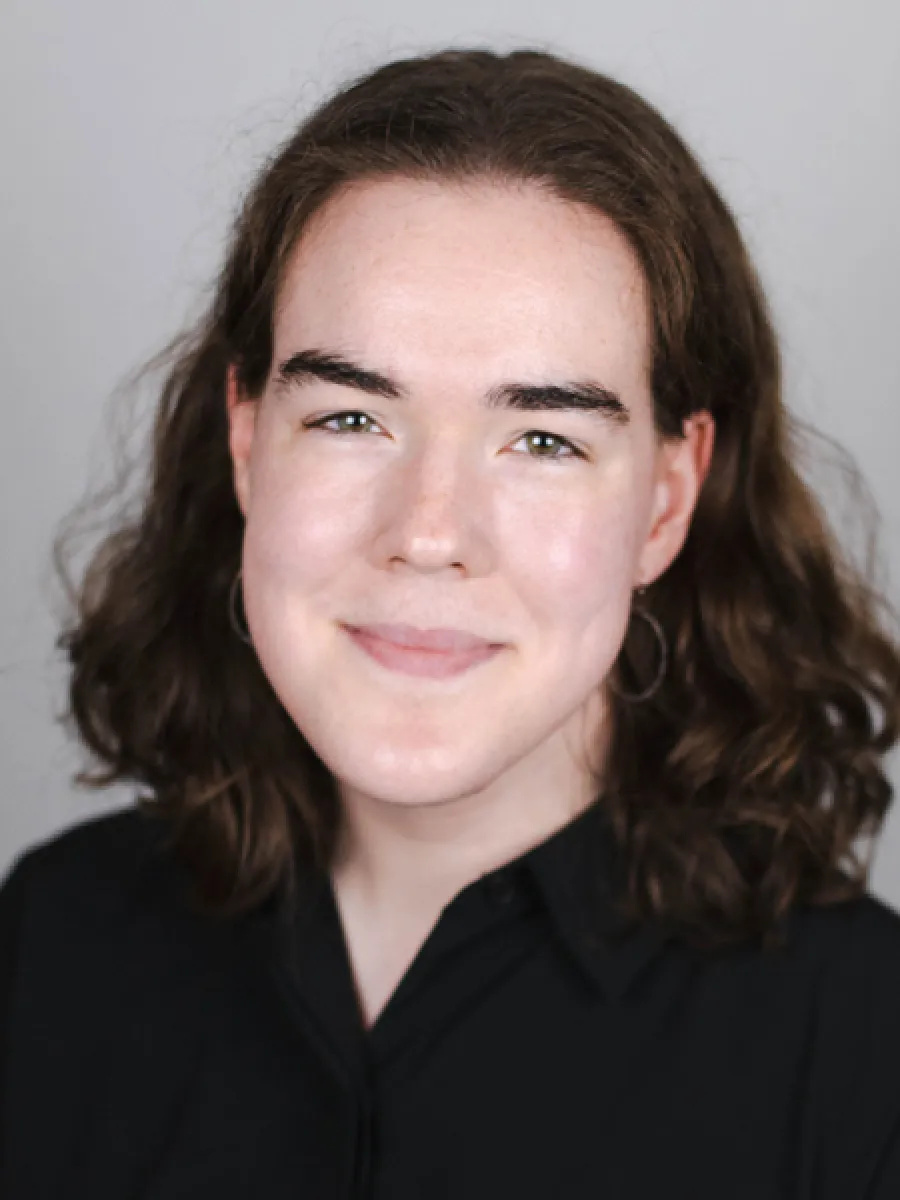
Erin Matula ’22 commented that,
“The Fillmore C. F. Earney Scholarship in 2021 inspired me to push my academic career in bold and new directions. The financial support opened the door to new possibilities that I may not have thought of previously because of resource limitations. This past spring, I seized the opportunity to present my undergraduate research at a conference, which greatly expanded connections within my GIS work. In January 2023 I started an M.Sc. program at Trent University in Peterborough, ON, Canada. I was looking for research projects where the topics were out of my comfort zone to push my skills in ecology. I will compare forms of carbon in boreal systems before and after prescribed burns. I will analyze data collected by automated surface vehicles (boat drones) that measure dissolved organic carbon, and by eddy flux towers that quantify atmospheric carbon. I am thrilled for the opportunity to work with researchers at Trent University and NRCan Canadian Forest Service, and to learn from partners at the University of Cambridge in the UK.”
Katy Robinson ’20 is engaged in soil conservation and considers pursuing a graduate degree after she gains work experience. Katy offered the following statement:
“The Fillmore C. F. Earney Scholarship was a pivotal event during my collegiate years. Like most of us, 2020 was a year I was not expecting. Being awarded this scholarship allowed me, for the first time since 2011, to not worry about money or working. I was finally able to focus on my studies and enjoying my last few months in Marquette. After graduation in November, I returned to the USDA - Natural Resource Conservation Service as a soil conservationist after serving as an intern the previous summer. NRCS has been a perfect fit for me to utilize the skills and knowledge I gained from attending NMU. I can truly and honestly say that were it not for the Earney Scholarship, my final days at Northern would not have been as amazing as they were. I will be forever grateful for Northern and all it has done for me.”

Raven Mitchell ’18 was the EEGS Department’s Outstanding Graduating Senior. She earned her Ph.D. in Geography at Michigan State University. Raven remarked,
“I was the recipient of the Fillmore C. F. Earney Endowment during my senior year at NMU in 2018. At that time, I was to begin a master’s program in the fall at Michigan State University under Dr. Fritz Nelson (a fellow NMU alumnus) studying periglacial (cold but not glaciated) geomorphology. Funds from the Earney Endowment supported my travel and participation in the Fifth European Conference on Permafrost which took place in Chamonix Mont-Blanc, France during the summer of 2018 following my graduation. My attendance at this conference represented one of my first (but certainly not last) cold-regions research experiences. Now, fast forward four years, I am a PhD student and I still study periglacial geomorphology. I credit my experiences at NMU, including support from the Earney Endowment, in my advancement as a young scientist. I am grateful for support from the Earney Endowment, and I very much look forward to my future research endeavors.”
Clayton Queen ’16 pursued a Master’s degree in Geography at Michigan State University after graduating from NMU. Currently he works for an environmental consulting firm in Vermont. Clayton contributed these comments:
“Receiving the Fillmore C. F. Earney Endowment scholarship at the end of my time at NMU during the transition to graduate school facilitated my integration into the graduate education environment. By receiving the scholarship, I was able to begin planning and conducting my thesis research prior to starting my graduate program which was especially important given the time and expense of conducting research in Arctic environments. Not only was the scholarship important from an academic side, but it provided much needed financial support during a transitory period of my life. It has truly been an honor to be an extension of Dr. Earney's legacy and been able to work with and study under his student, Dr. Frederick Nelson.”
Dr. Frederick E. Nelson, an Earth Science major at NMU, reflected on what motivated him to launch the endowment:
“On the advice of a fellow student, I took my first geography course at NMU in the Spring 1970 semester. The course was a survey of the geography and governance of the Union of Soviet Socialist Republics (USSR), team-taught by geographer Fillmore Earney and political scientist Fred Berry, both of them lecturers of the highest caliber. The course was an epiphanous experience for me—I had had a long-standing love for landscapes, maps, and human-nature interrelations, but no idea that an academic discipline concerned with such things existed. I was hooked, and became a geography major that semester. Professor Earney’s skillful use of slides and maps in lectures, his detailed and intellectually challenging assignments, and his obvious regard for students’ education were inspiring. Nearly two decades later I developed working relationships with Soviet (Russian) scientists that have endured for 35 years. What I had learned in that 1970 course remained useful throughout my extensive travels in Russia and neighboring republics.
Flashing forward to my senior year, I enrolled in Professor Earney’s course “Introduction to Geographic Research.” The course was focused on how to obtain information about topics of individual interest, to digest and consolidate that information, and to produce a concise and well-written paper. We met in the library and learned how to navigate library methods effectively and efficiently. The first half of the course was, in effect, a survey of what we now call “information science.” We were given a series of weekly assignments that introduced us to the steps necessary to produce an independent research paper. Professor Earney employed the Socratic method during our weekly meetings and students developed a strong sense of pride in demonstrating their accomplishments before their peers. There is no question that the research methods course was the most consequential course I took as an undergrad. The course taught me how to teach myself, one of the most important abilities an academic can possess. In graduate school I seemed often to have advantages over my peers, many of them from elite universities, because I had gained the ability to find information and communicate it effectively under Professor Earney’s tutelage. Much later, while an assistant professor at Rutgers University, I was called upon to teach a course in geographical research methods. Using updated technology, I modeled the course after Dr. Earney’s. Again, students rose to the occasion and produced excellent studies about topics of their own choosing. I repeated this course frequently over the years, at several universities, and ended up publishing a description of it in a major academic journal (Journal of Geography).
Toward the end of my teaching career, I began thinking about how I might want to give back to my discipline and alma mater. It was a relatively easy decision to create an endowment named for Fillmore C. F. Earney, the professor who had the greatest influence on me during my undergraduate years. The Endowment is flexible, and allows departmental faculty to create awards that accommodate and enhance varying student interests, circumstances, and needs. It’s gratifying to see that the Endowment’s awards have gone to NMU students of quite diverse backgrounds and intellectual pursuits. Their letters of appreciation to Dr. Earney demonstrate that they have derived substantial benefit through being recipients of the award, and by extension, his career. The teaching and research accomplishments of Professor Earney continue to foster the success of the Department of Earth, Environmental, and Geographical Sciences, NMU, and the outside world!”
As you heard from Dr. Nelson, Dr. Earney was a legendary professor. Dr. Earney has been a generous supporter of the endowment, and he deeply appreciates the ways in which scholarships in his name have helped NMU students make their own mark on the world. Although Dr. Earney retired from NMU more than 25 years ago, he keeps tabs on the Department and its students’ successes. Dr. Earney observed the following:
“The most meaningful comment I can make is that the idea of the Endowment and its establishment came from a former student who has, in many ways, exceeded my accomplishments. He [Dr. Nelson] was a joint recipient of the 2007 Nobel Peace Prize, awarded to the Intergovernmental Panel on Climate Change, composed of international scholars in various scientific disciplines.
Several students who have received assistance from the Endowment have written to me, expressing their appreciation for the help it provided in their current departmental work and in furthering their future professional goals. Especially important to me is the sharing of their ongoing research projects made possible, in part, by the Endowment.
Dr. Frederick Nelson’s accomplishments exemplify my hopes for all students within the EEGS Department—present and future. Collectively, I expect they will have significant impact on our discipline’s efforts to enhance Earth’s life-conditions and our wise use of Nature’s bounty.”
